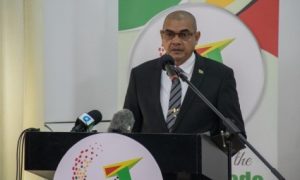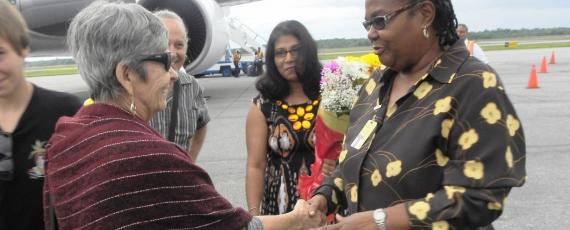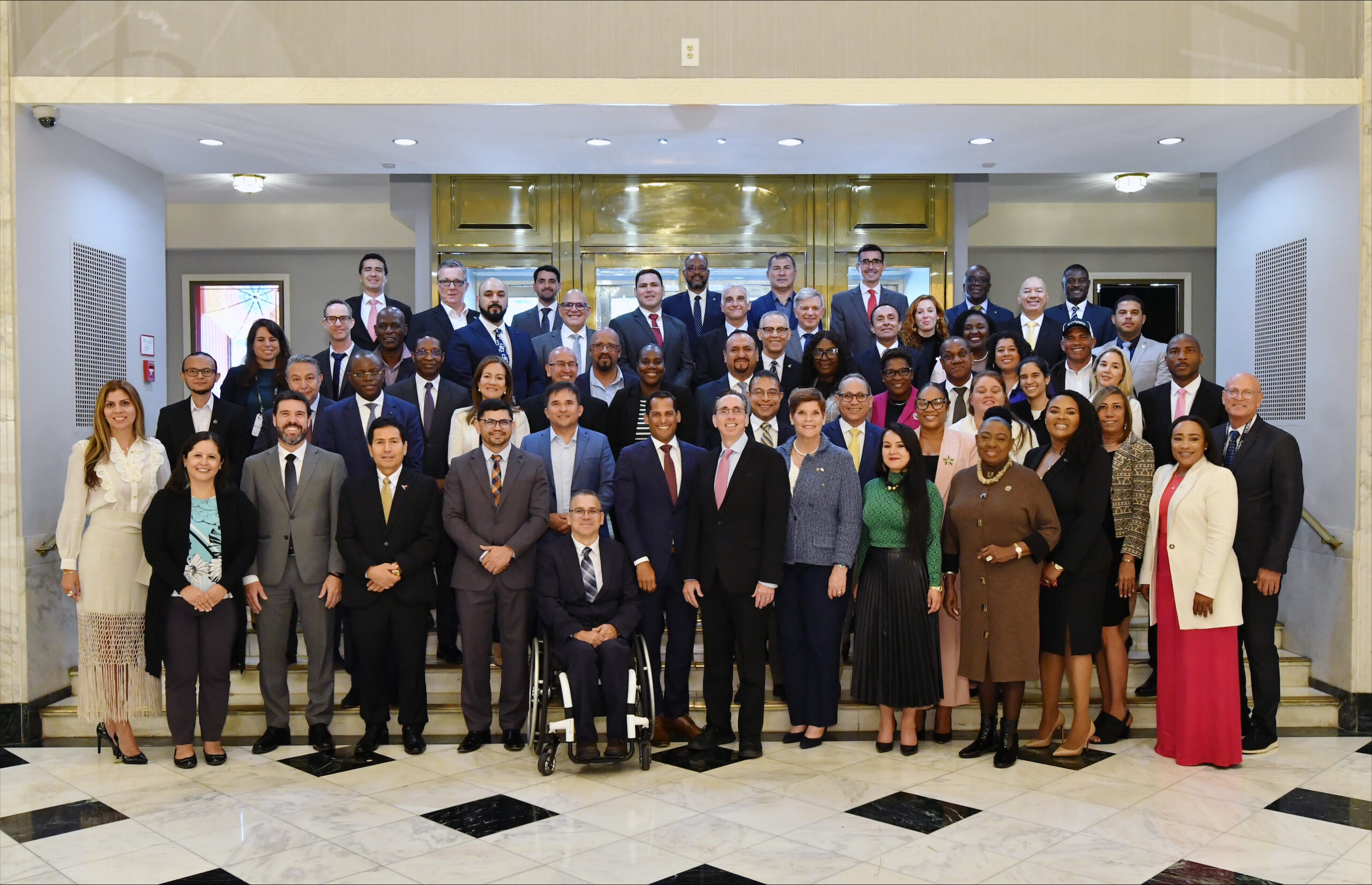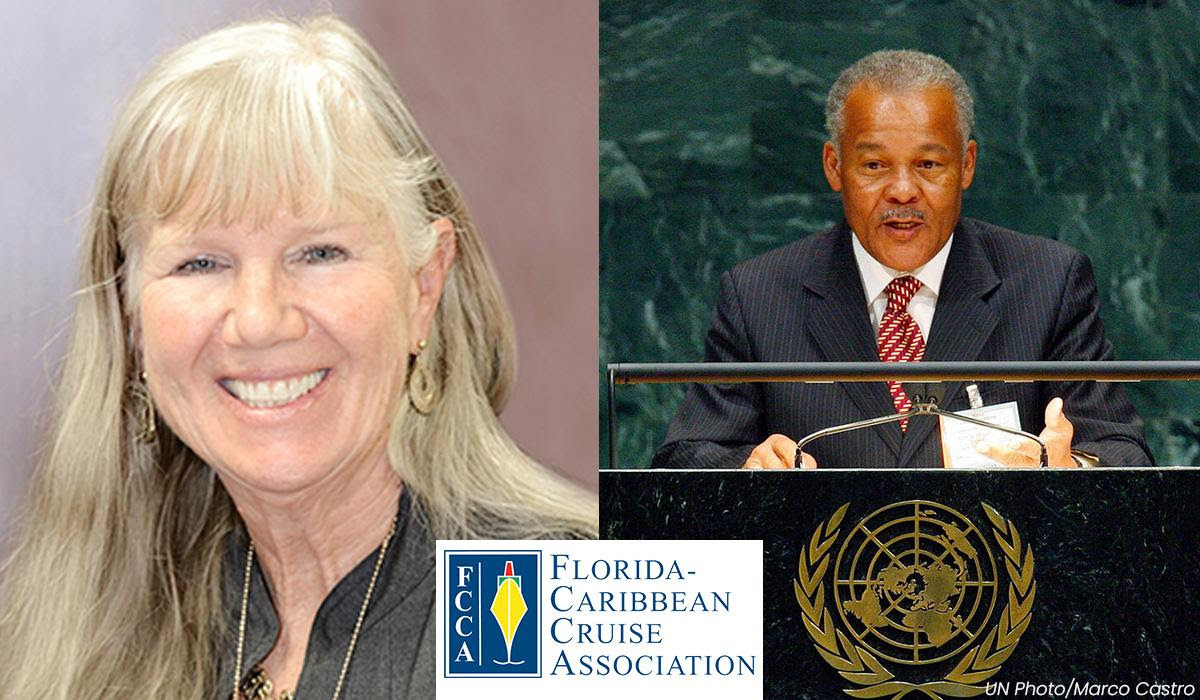Press Release
Washington, USA, April 26, 2024 – Hon. Rachel Taylor, Minister of Education, Youth, Sports, and Culture, signs CADE declarations at the General Assembly American Sports Council, CADE 2024 held in Washington DC, USA.
The Sport meetings commenced on Thursday, 25th April and continued through Friday, 26th April, 2024. There were three meetings held during the two days: A bi-lateral meeting hosted by the USA for English Speaking Caribbean countries; CONCECADE (Meeting for Central America, Mexico, and the Caribbean); and CADE (meeting with South America, Central America, and the Caribbean and North America).
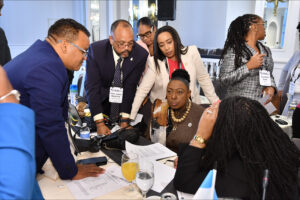
Accompanying the Minister were the Deputy Permanent Secretary of Education, Youth, Sports and Culture, Mr. Amin McCartney, and the Director/CEO of the TCI Sports Commission, Mr. Jarrett Forbes. Sport leaders from thirty (30) plus countries from across South America, Central America, North America, and the Caribbean were present.

Amongst the topics discussed were: a report from the recently hosted Pan-American and Parapan-American Games in Santiago Chile 2023 and its legacies; Jamaica’s approach to developing mass participation through its Sport for All programmes; USA Commission for Athlete Representation; Inclusion in sports through strengthening para and special Olympic programmes; the commitment and social benefits of physical activity in schools; Structure and application of the Paralympic sport system in Columbia; and anti-doping in sports.

After the General Assembly, common positions for the future of sports in the Americas were taken with a final declaration and bilateral agreements of the CADE Assembly 2024.
Comment from the Minister of Education Youth Sports Culture and Library Services
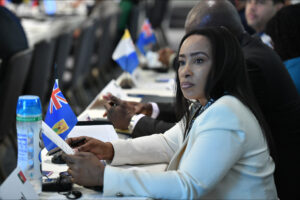
“It was a pleasure to attend the General Assembly of the American Sports Council – CADE 2024 for the first time as the Minister of Sports for the TCI. It provided a greater insight into the roles and responsibilities of each entity and the kind of support we can garner whether financially, technically, or in the area of training. The CONCECADE bi-lateral meeting with Mexico, Central America, and the Caribbean provided an opportunity for Caribbean Member countries to voice their concerns in relation to legacy matters including the dissemination of minutes and other content in English. This year yielded the largest number of Caribbean Ministers in attendance for the English-speaking countries, providing an opportunity to share best practices and collaborate with their counterparts.”
CADE Declarations signed by the Minister of Education, Youth, Sports and Culture include:
First: Sports is something very special – it brings people together from every corner of the world, from every possible background. Each person, from every age, should have the opportunity to participate in the sports they enjoy. It is essential that all of us throughout the Americas reiterate our longstanding commitment to the development and implementation of sports policies for every segment of society, without any discrimination of any kind. It is essential to recognize that sports also have a critical role to play in addressing many of our social issues, including gender equality and inclusion, health promotion, education, and livelihood.
Second: Paralympians are amazing athletes and an inspiration to everyone who gets the chance to see what they can do. It is essential for every country to ensure that Paralympic athletes have robust opportunities to train, compete, and celebrate their amazing and vital contribution to sports.
Third: The Americas is proud of the success of the 2023 Pan American Games hosted by the Government of Chile and organized in cooperation with Pan Am Sports and the Chilean National Olympic Committee. We offer our deepest congratulations to all athletes who competed, their coaches and families, and to all those in Chile who worked so hard to ensure the success of the Games.
Fourth: The success of sports in the Americas has many elements, but first among them is the commitment to excellence of our athletes. The dedication, discipline, and spirit of everyone who seeks to be the best in their fields is an inspiration to us all, especially our children, who need role models and heroes to look to as they pursue their dreams.
Fifth: The Members of CADE commit to strengthening CADE as an organization with the vision of it building on the strong foundation that already exists, to becoming an even more robust hemispheric multilateral organization specializing in Sports.
Sixth: All CADE member countries are signatories to the UNESCO convention and we reiterate the importance of the convention as a government multilateral institution with critical anti-doping responsibilities and an obligation to work collaboratively with all sports and anti-doping stakeholders.
Seventh: Anti-Doping is a critical responsibility for every country. In this regard, it is vital that public authorities, whether through their Sports Ministry or otherwise, ensure that sufficient funding is available to national anti-doping organizations so that they are able to effectively implement their important obligations to ensure fair competition. It is the responsibility of the government to support the institutions our athletes are part of, to ensure the integrity of sports. The CADE general assembly very much appreciated the opportunity to hear directly from the WADA President for the first time.
Eight: The Olympic Movement plays a very critical role in the World of Sports. They are a vital stakeholder year-round, not just when it’s time for the Summer and Winter Olympics to develop Sports. They are part of the Sports ecosystem, which includes sports ministries, the International Olympic Committee, Pan Am Sports, the National Olympic Committee, Sports Federations National Anti-Doping Organizations, and a wide array of support and sponsors. It is critical that these vital relationships among all stakeholders remain strong. We thank the International Olympic Committee for their participation in this year’s CADE Sports Summit and invite them to participate again next year.
END


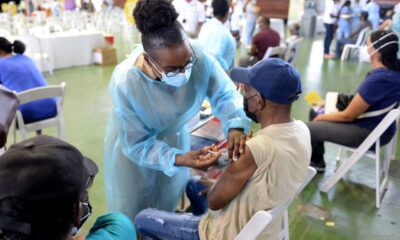
 Health2 days ago
Health2 days ago
 TCI News4 days ago
TCI News4 days ago
 Crime1 week ago
Crime1 week ago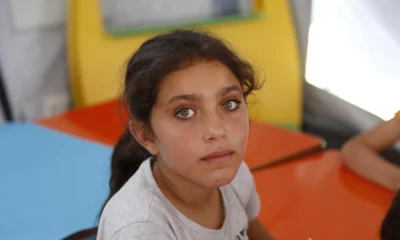
 TCI News1 week ago
TCI News1 week ago
 Bahamas News7 days ago
Bahamas News7 days ago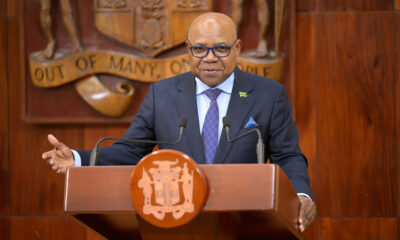
 Caribbean News7 days ago
Caribbean News7 days ago
 Bahamas News1 week ago
Bahamas News1 week ago
 Bahamas News7 days ago
Bahamas News7 days ago


